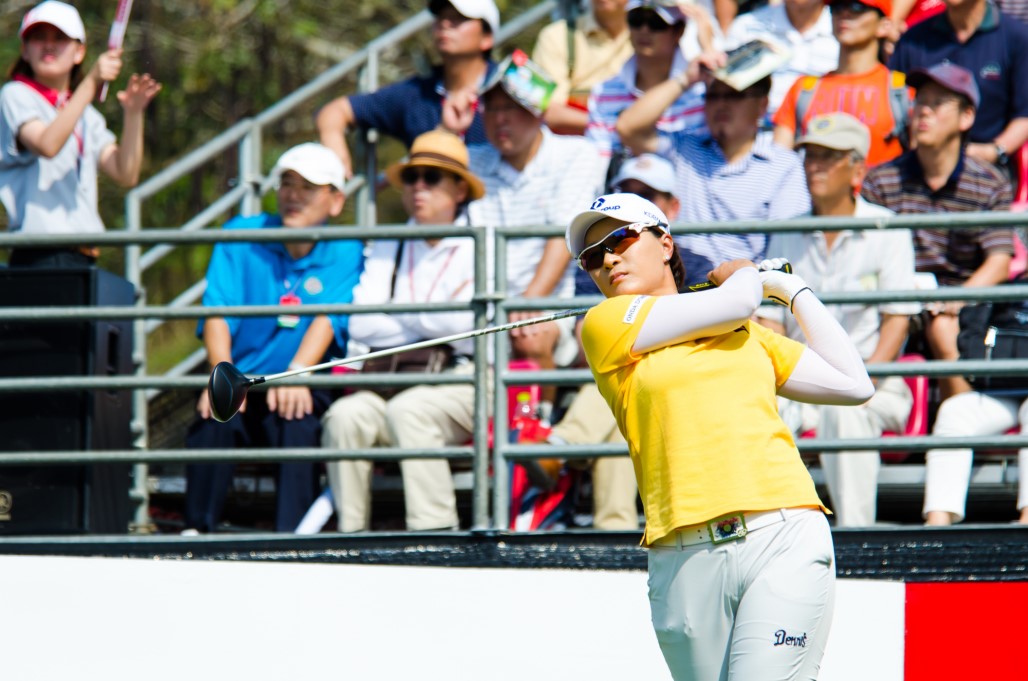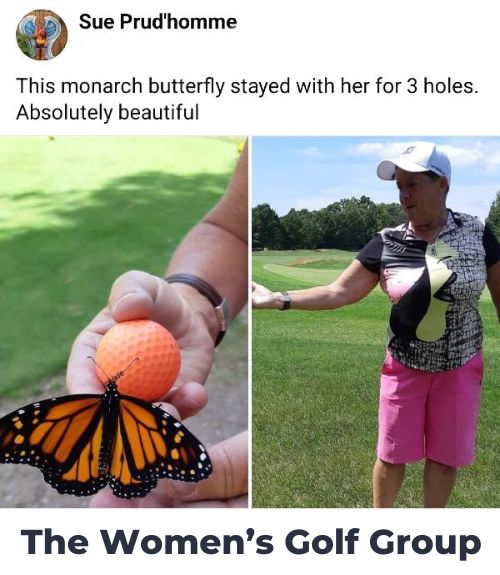If a list were drawn up of the 10 most significant figures in the history of women’s golf, Se Ri Pak’s name would be near the top of that list.
 Pak, who turns 39 in September, will retire at the close of the 2016 season with a record that includes 25 LPGA wins (five of them major championships) and a legacy nearly unmatched in terms of historical impact on her sport.
Pak, who turns 39 in September, will retire at the close of the 2016 season with a record that includes 25 LPGA wins (five of them major championships) and a legacy nearly unmatched in terms of historical impact on her sport.
The landscape of women’s golf looks far different than it did when Pak first arrived on the scene, largely due to the efforts of Pak herself. She is as much a pioneer in her sport as Jackie Robinson was in his.
Pak first attracted notice when she arrived at the 1998 McDoanld’s LPGA Championship and proceeded to win it. No one knew anything about her and when she ascended to the top of the leaderboard by opening with a 65, one writer from a national publication was dismissive, making the comment “She won’t stay up there.”
In fact, Pak stayed in front all week and won by three shots. Two months later she won the U.S. Women’s Open in a playoff over amateur Jenny Chuasiriporn in what turned out to be a 20-hole playoff.

She went on from there. For the next six years she was nothing less than brilliant; through 2003, she won 21 times. Injuries slowed her after that, by age 26 she had peaked.
Injuries aside, however, Pak labored under pressures that would have overwhelmed a lesser athlete. When she first arrived on American shores she was the only Korean player on the LPGA Tour. She spoke no English and came across as a grim, foreboding figure Her sponsors provided a combination caddie/interpreter/bodyguard who translated for her in press conferences. Some in the media were suspicious that his translations were less than authentic and, as it turned out, those suspicions were justified as Pak herself confirmed some years later after become fluent in English — she picked up the language by watching American television.

Pak also had to deal with the monumental expectations of her countrymen in Korea and the Korean media. Korean athletes who compete internationally are expected to carry the honor of the nation with them. So it was that Pak was under scrutiny virtually around the clock throughout her career. Once she became fluent in English however, Pak became more comfortable in the public arena and those who dealt with her discovered a personable, engaging woman.
At the same time, her stature in her homeland grew to mythic proportions. Thanks to Pak, countless Korean girls chose to take up golf. Players like Inbee Park, Na Yeon Choi, and, more recently, In Gee Chun and Lydia Ko, might never have been heard of had it not been for Pak’s trailblazing efforts.
Unfortunately, there are some who would prefer it that way and Park and her fellow Korean players have encountered resentment and bigotry in some quarters. But Park’s place in the history of the game of golf is secure and her homeland is the dominant power in the women’s game. The USGA has honored her by granting her an exemption into the 2016 U.S. Women’s Open, a fitting salute to one of the sport’s most important contributors.

 A member of the Golf Writers Association of America, Rick Woelfel has covered women’s golf for three decades. Based in Willow Grove, Pennsylvania he has covered the LPGA and Symetra Tours for various media outlets and also has an extensive background covering amateur golf in the golfing hotbed of Philadelphia.
A member of the Golf Writers Association of America, Rick Woelfel has covered women’s golf for three decades. Based in Willow Grove, Pennsylvania he has covered the LPGA and Symetra Tours for various media outlets and also has an extensive background covering amateur golf in the golfing hotbed of Philadelphia.
Rick is particularly attracted to the history of the sport and credits the LPGA and its players for their efforts to preserve the history of their organization. In 2012, he had the opportunity to attend the Founders Cup and had the opportunity to interview all the then living Founders, an experience he lists as one of the most memorable of his career.
Apart from golf, Rick has written extensively about other sports and had a long career in radio. He has just completed his first book, So You Want to Play Golf, a guide for new golfers, which was a joint effort with PGA professional Kim Verrecchio.
You can follow Rick online at his website and on Twitter at @WomensGolfRep.







